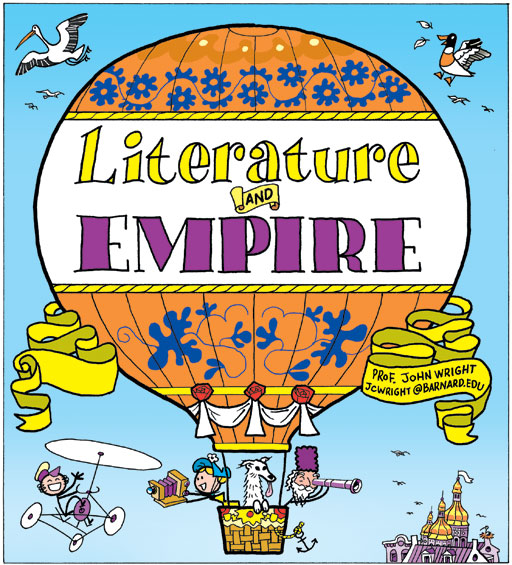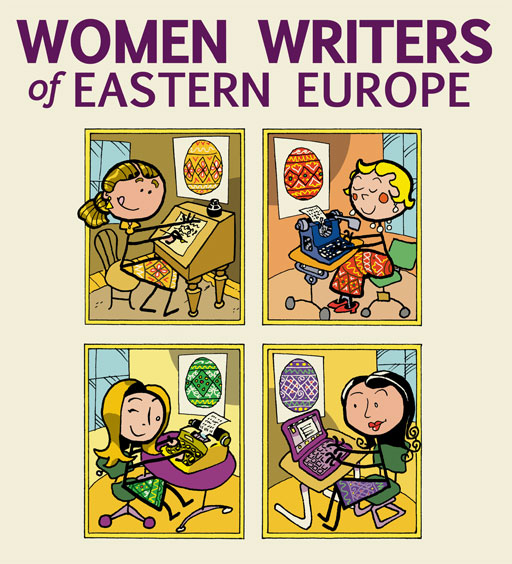Slavic Department Curriculum
Slavic Courses Regularly Offered at Barnard

Literature and Empire (19C Lit)
Explores the aesthetic and formal developments in Russian prose, especially the rise of the monumental 19th-century novel, as one manifestation of a complex array of national and cultural aspirations, humanistic and imperialist ones alike. Works by Pushkin, Lermonotov, Gogol, Turgenev, Tolstoy, Dostoevsky, and Chekhov. Knowledge of Russian not required.

Women Writers of Eastern Europe: Belarus, Ukraine, and Russia
The course addresses the works of women writers of Ukraine, Belarus, and Russia from the 19th century to the present. All assigned readings will be in English. The purpose of the course is to become familiar with the struggles and concerns of these authors, as well as the general features of their lives and cultural contexts. Most readings assigned are primary texts. These will be supplemented during course meetings: the instructor will bring in various materials that would be obscure if assigned to students outside of class, but with live explanations in-class, will enrich their understanding of the primary readings.

Dreaming Empire: Britain & Russia in the 19th Century
The course falls neatly into two halves, addressing the British and Russian empires as they were in the 19th century. The purpose of the course is to become familiar with imperial thinking, the thought (pro-empire, anti-empire, and simply permeated by empire, to put it in terms familiar to a contemporary audience) implicit in various literary works of the time. For the most part, the readings assigned are primary texts. These will be heavily supplemented during course meetings: the instructor will bring in various materials that would be obscure if assigned to students outside of class, but with live explanations in-class, will enrich their understanding of the primary readings.
Most readings are literary texts, though students will also read and receive guidance in secondary academic literature about those works. A few philosophical and historical texts from the time under examination will also be assigned.